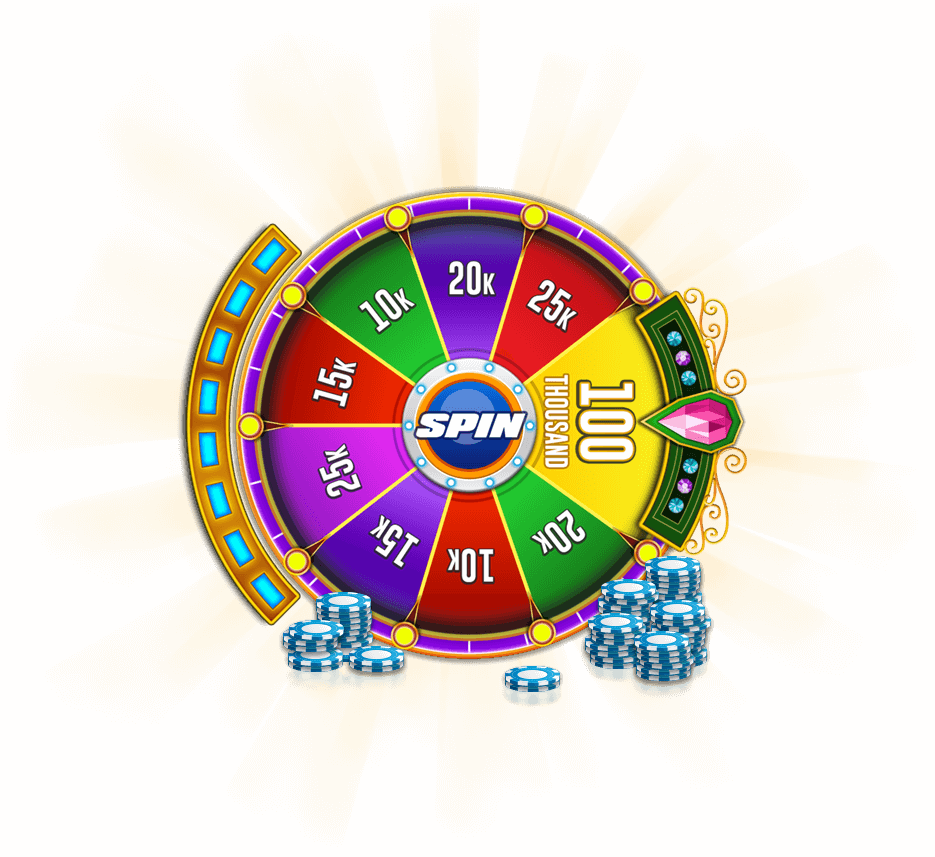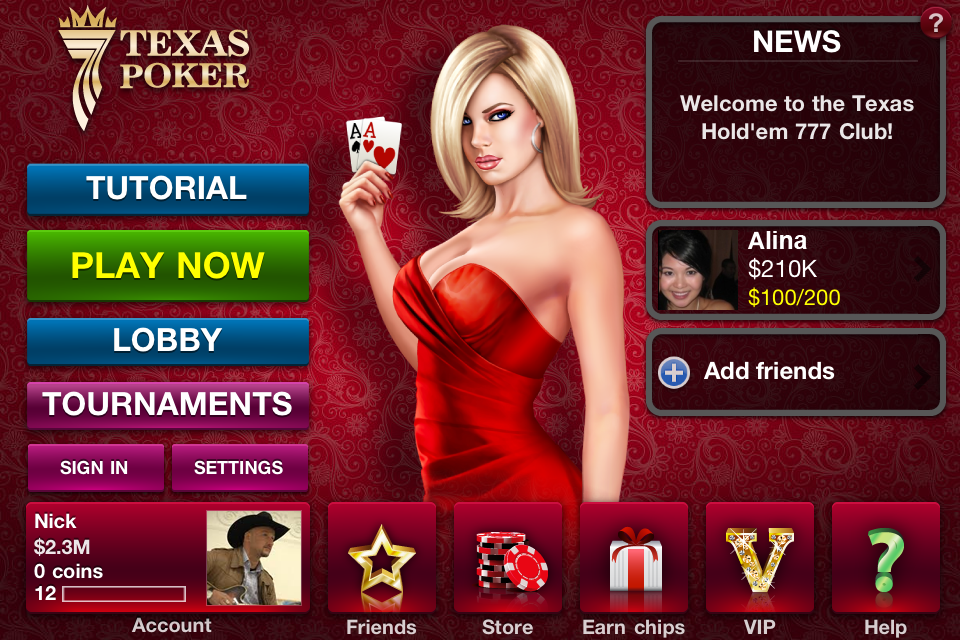MULTIPLAYER (Hold'em, Sit'N’Go, MTT, Club MODE) Quick to enter different rooms to play Texas Hold'em with other players all over the world. Play without limits, play multi-table poker tournaments, in Sit'N’Go rooms or in Club mode so you can choose the rooms and your partners. FAIR POKER GAME We ha. Club7 – feel the real casino vibes! The best games for your mobile? We present you the innovative Club7 app, which will make you feel like you are in a real casino. Download the Club7 app today and test your skills in exciting online games! Club7 is the app that was created in response to the needs and expectations of Players from all over the world. Therefore it is no wonder that Club7 is. It was removed from the app store a couple of weeks ago, no idea why. It was removed from my ipod touch, but is still on my phone. The good news is that the pokerist.com app, texas poker, is there and both apps access the same games. So if your friend uses the 777 poker app, you can still play with him using the texas poker app.
Hold 'em poker (also known as Texas Hold 'em) is currently the world's most popular poker game. There are three types of Hold 'em games:
- Limit Hold'em (specific betting limits are applied to each round of betting
- Pot Limit Hold'emafter the blinds are posted, players can wager any amount up to the total amount of money in the pot
- No Limit Hold'em after the blinds are posted, players can bet all of their chips at any time
All of the betting scenarios given as examples below are specifically applicable to Limit Hold 'em poker. The other two versions of Hold'em have different betting patterns.

The Game:
First round
Play begins with the person sitting in first position at the table becoming the dealer (or “button”). The dealer button moves clockwise around the table after the culmination of each hand of play. The player immediately on the left of the button must post the small blind, while the player on the left of the small blind must post the big blind. The small blind is equal to half of the table's minimum bet, while the big blind is equal to the minimum bet. For example, at a $1/$2 Hold ’em table, the small blind would post 50 cents and the big blind would post $1.

Sometimes, more than one player will post a big blind in a given hand. This would occur if a new player joins a table at which a game is already underway. Before a new player is allowed to start playing, he/she has to post the big blind. The new player has the option of waiting for the dealer button to arrive at his/her position, in order to place the big blind in turn, or of posting the big blind (out of turn) at the start of the next hand for the immediate ability to play. All the blinds in Hold ’em poker are considered live bets and the players who posted them will also have the option to check, call, raise or fold when the betting action returns to their position at the table.
After the blinds have been posted, two down cards (or “hole” cards) are dealt to each active player, after which the first betting round begins. The player to the left of the big blind starts the betting for this round. Each player will now have the choice to call or raise the blind bet, or fold his/her cards.
In a $1/$2 Limit Hold ’em game, for example, each bet is $1 (the lower limit) in the first round. If someone wishes to bet, the bet placed is for $1, no higher or lower. If another player wishes to raise the bet, $2 are placed in the pot, $1 to call and an extra bet of $1 (no more and no less) as the raise.
Players who wish to continue participating in a given hand must match any bets that come their way. Betting will continue until all people who wish to participate in the hand have checked, bet, or called. Typically three or four bets/raises are allowed per betting round in Limit Hold 'em.
After the first round of betting is over, the “flop” (the first three community cards) is dealt face up on the playing surface. The community cards are common to all players participating in the hand.
Second Round
After the flop, and in each subsequent betting round, the first active player left of the button is first to act. In Limit Hold 'em, the betting structure for the second round is exactly the same as in the first round.
After the second round of betting is over, the fourth community card (also known as the “turn”) is dealt out on to the board face up.
Third Round
The third betting round again begins with the first active player to the left of the button. In $1/$2 Limit Hold 'em, the third betting round's bets are $2 (the upper limit). If someone wishes to bet, he/she must bet $2, no more and no less. Each raise must also be made in $2 increments. For example, if someone bets in the third round and an opponent wishes to raise, he/she must place a total of $4 in the pot in order to do so.
At the end of the third round of betting, the fifth community card (also known as the “river”) is dealt out on to the board face up.
Fourth Round
777 Texas Poker App To Play
The fourth (and final) betting round now takes place. In Limit Hold 'em, the betting structure for the fourth round is exactly the same as in the third round.
After the betting is completed, players reveal their hole cards in a “showdown” and the one with highest hand wins the pot.
The Showdown
After the final round of betting, in order to determine a pot's winner, players need to ascertain who the highest hand belongs to. They do so in a “showdown.” If players choose, they may concede the hand to the winner and “muck” (not reveal) their hole cards, so as not to indicate to their opponents what their strategies were (or if they were bluffing). A winning hand can be made up of any combination of a player's hole cards and the board's community cards. If a player “plays the board,” he/she uses all five openly displayed cards and can hope for a share of the pot at best.
If two or more hands are of the same ranking and tie for the win, the pot is split as evenly as possible among the winners. Online, if there is an odd chip, the winning player closest to the left of the button/dealer will receive it. In live poker games, an odd chip is traditionally left in the pot for all players to compete for in the following hand.
777 Texas Poker App Login
*In No-Limit and Pot-Limit Hold 'em there are some minor differences to the rules listed above as far as betting goes. They are listed below.
Betting Rules for Pot-Limit Hold'em
Minimum raise: The amount of a raise must be at least as much as the previous bet or raise in the same round. For example, if the first player to act bets $100, raisers must raise at least another $100 (for a total bet of $200), unless they don't have enough chips to do so, in which case they are ruled to be “all-in.”
Maximum raise: The total amount of the pot. The size of the pot is defined as the amount the active player must first call before raising plus all active bets on the table. For example, if $5 is currently in the pot and a player has bet $1, the next active player may raise up to $6. If he/she does so, then the next active player may raise up to $12. If someone has gone “all-in,” the main pot is considered dead with regard to the total pot size, which is then only determined by the size of the side pot.
777 Texas Poker Apparel
Betting Rules for No-Limit Hold'em
Minimum raise:The amount of the raise must be at least as much as the previous bet or raise in the same round. For example, if the first player to act bets $100, raisers must raise at least another $100 (for a total bet of $200), unless they don't have enough chips to do so, in which case they are ruled to be “all-in.”
Maximum raise: A player's entire stack (amount of chips on the table).
777 Poker App

Back to Poker Games